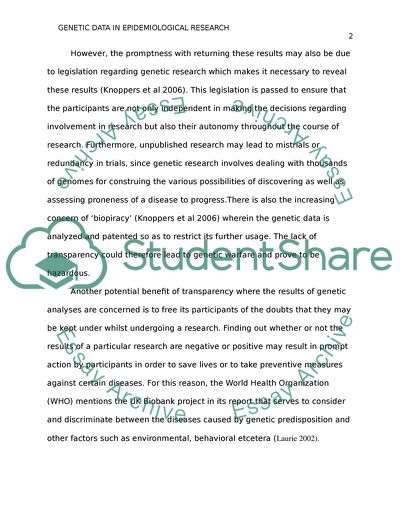Collecting And Analyzing Genetic Data In Epidemiologic Research Essay. https://studentshare.org/medical-science/1838212-collecting-and-analyzing-genetic-data-in-epidemiologic-research
Collecting And Analyzing Genetic Data In Epidemiologic Research Essay. https://studentshare.org/medical-science/1838212-collecting-and-analyzing-genetic-data-in-epidemiologic-research.


